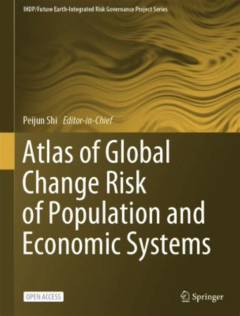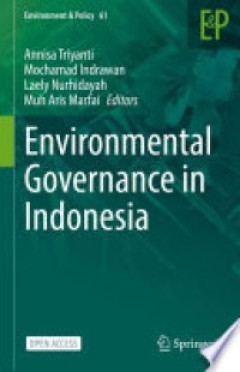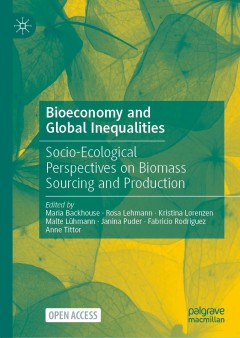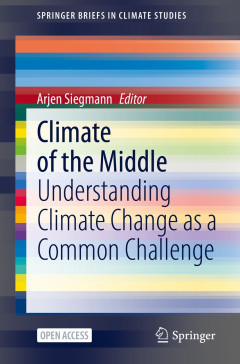Filter by

Surveying climate-relevant behavior :measurements, obstacles, and implications
This open access book discusses the contribution of sociology and survey research to climate research. The authors address the questions of which behaviors are of climate relevance, who is engaging in these behaviors, in which contexts do these behaviors occur, and which individual perceptions and values are related to them. Utilizing survey research, the book focuses on the measurement of clim…
- Edition
- -
- ISBN/ISSN
- 9783030857967
- Collation
- xi, 159p. : ill.
- Series Title
- -
- Call Number
- 363.73874 MAR s

The environmental rule of law for oceans:designing legal solutions
Our oceans need a strong and effective environmental rule of law to protect them against increased pressures and demands, including climate change, pollution, fisheries, shipping and more. The environmental rule of law for oceans requires the existence of a set of rules and policies at multiple governance levels that appropriately regulate human activities at sea and ensure that pressures on th…
- Edition
- -
- ISBN/ISSN
- 9781009253741
- Collation
- xxxiii, 380 pages; illustration
- Series Title
- -
- Call Number
- 341.4 POZ t

Atlas of global change risk of population and economic systems
This book is open access and illustrates the spatial distribution of the global change risk of population and economic systems with the maps of environment, global climate change, global population and economic systems, and global change risk. The risks of global change are mapped at 0.25 degree grid unit. The risk results and their contribution rates of the world at national level are unpreced…
- Edition
- -
- ISBN/ISSN
- 9789811666919
- Collation
- XXII, 278 p
- Series Title
- -
- Call Number
- 363.73874

Environmental governance in indonesia
This open access book presents the state-of-the-art environmental governance research and practices in Indonesia. It offers a wide scope, covering different sectors (e.g., forestry, mining) and geographical landscapes (e.g., inland and coastal areas). This book engages with existing theories and frameworks, including Earth System Governance, Adaptive and Interactive Governance, among others to …
- Edition
- -
- ISBN/ISSN
- 9783031159046
- Collation
- XII, 513 p
- Series Title
- -
- Call Number
- 333.709598

Bioeconomy and global inequalities
This open access book focuses on the meanings, agendas, as well as the local and global implications of bioeconomy and bioenergy policies in and across South America, Asia and Europe. It explores how a transition away from a fossil and towards a bio-based economic order alters, reinforces and challenges socio-ecological inequalities. The volume presents a historically informed and empirically r…
- Edition
- -
- ISBN/ISSN
- 9783030689445
- Collation
- xvi; 381 PG; ill.
- Series Title
- -
- Call Number
- 354.3 BIO b

Climate of the middle
his Open Access book presents a multidisciplinary perspective to increase our understanding of climate policies that are rooted in the natural moral inclinations of people, families and firms. Which policies prevent a widening gap between higher and lower educated people? Which policy instruments are there, and how could they be used? What is the role of free entrepreneurship?
- Edition
- -
- ISBN/ISSN
- 9783030853228
- Collation
- ix; 71 PG; ill.
- Series Title
- -
- Call Number
- 363.73874 CLI c
 Computer Science, Information & General Works
Computer Science, Information & General Works  Philosophy & Psychology
Philosophy & Psychology  Religion
Religion  Social Sciences
Social Sciences  Language
Language  Pure Science
Pure Science  Applied Sciences
Applied Sciences  Art & Recreation
Art & Recreation  Literature
Literature  History & Geography
History & Geography